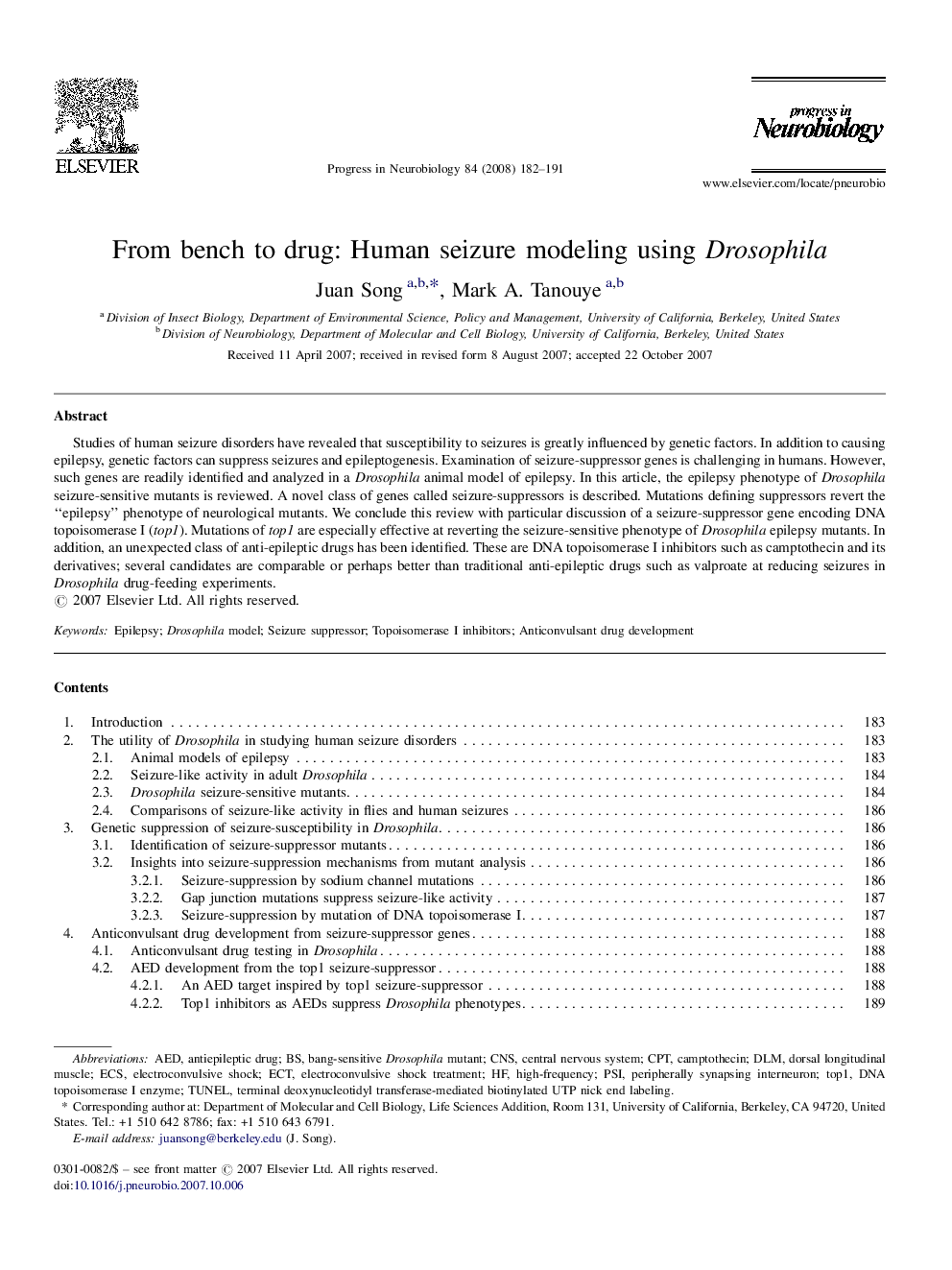| Article ID | Journal | Published Year | Pages | File Type |
|---|---|---|---|---|
| 4353804 | Progress in Neurobiology | 2008 | 10 Pages |
Studies of human seizure disorders have revealed that susceptibility to seizures is greatly influenced by genetic factors. In addition to causing epilepsy, genetic factors can suppress seizures and epileptogenesis. Examination of seizure-suppressor genes is challenging in humans. However, such genes are readily identified and analyzed in a Drosophila animal model of epilepsy. In this article, the epilepsy phenotype of Drosophila seizure-sensitive mutants is reviewed. A novel class of genes called seizure-suppressors is described. Mutations defining suppressors revert the “epilepsy” phenotype of neurological mutants. We conclude this review with particular discussion of a seizure-suppressor gene encoding DNA topoisomerase I (top1). Mutations of top1 are especially effective at reverting the seizure-sensitive phenotype of Drosophila epilepsy mutants. In addition, an unexpected class of anti-epileptic drugs has been identified. These are DNA topoisomerase I inhibitors such as camptothecin and its derivatives; several candidates are comparable or perhaps better than traditional anti-epileptic drugs such as valproate at reducing seizures in Drosophila drug-feeding experiments.
